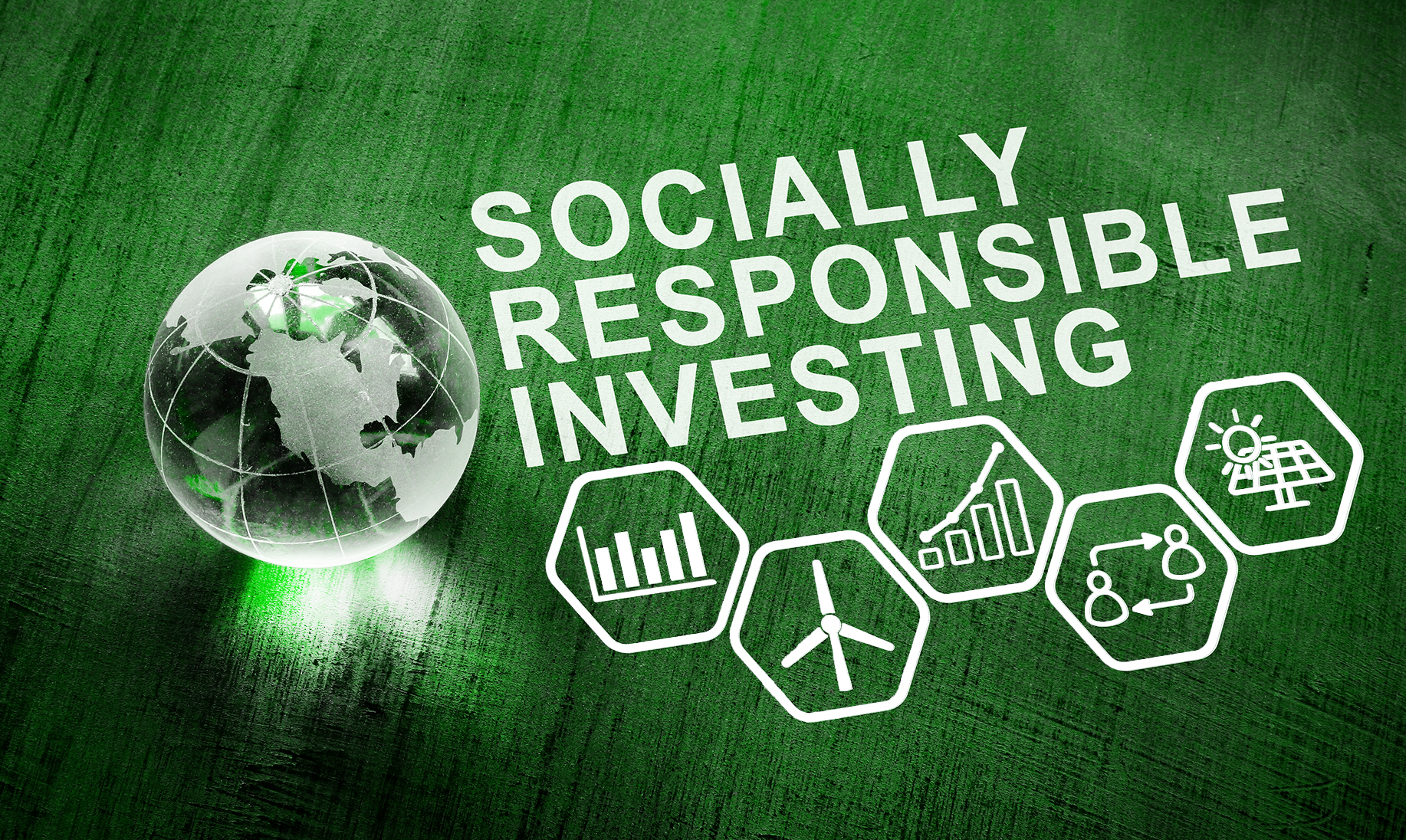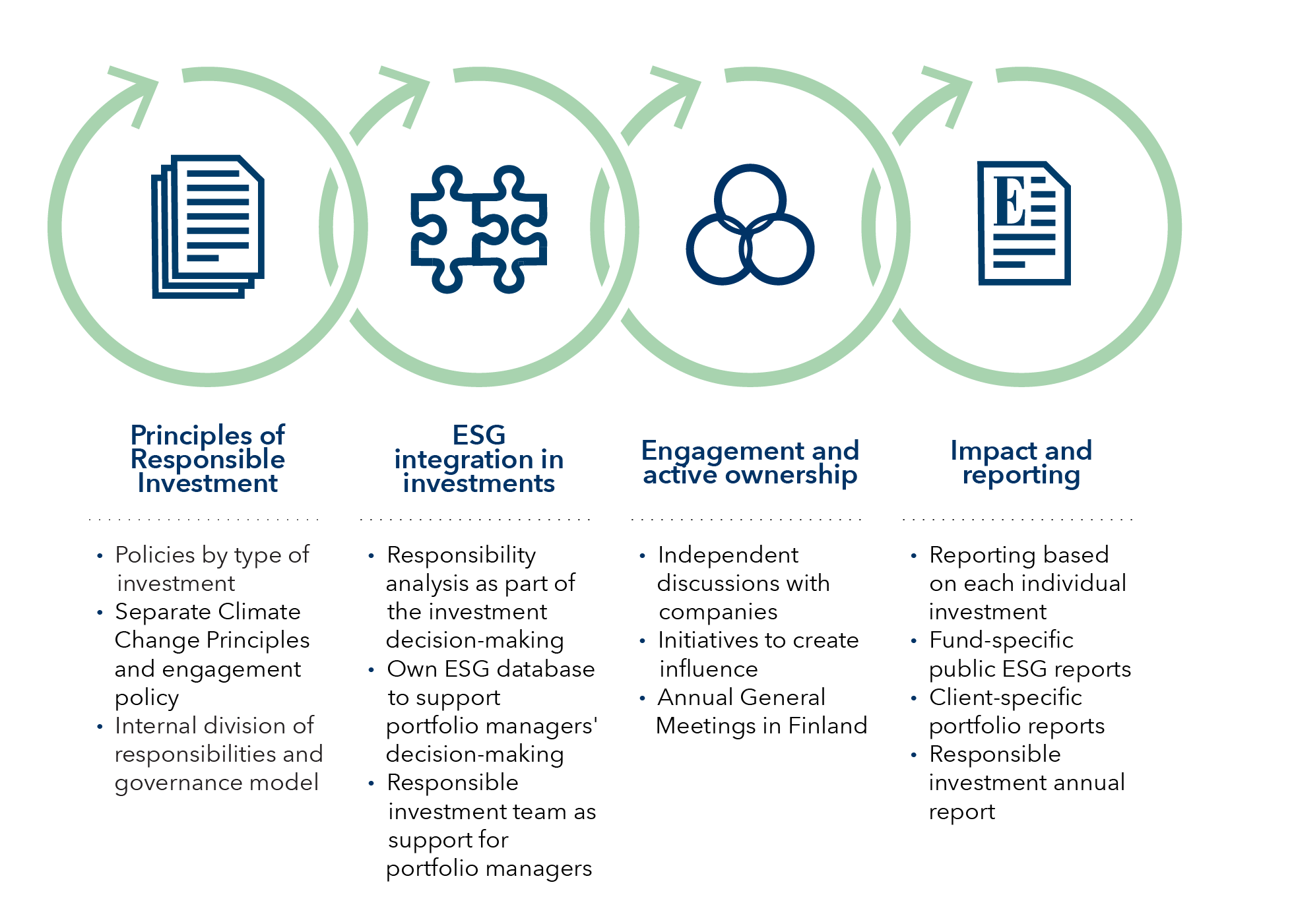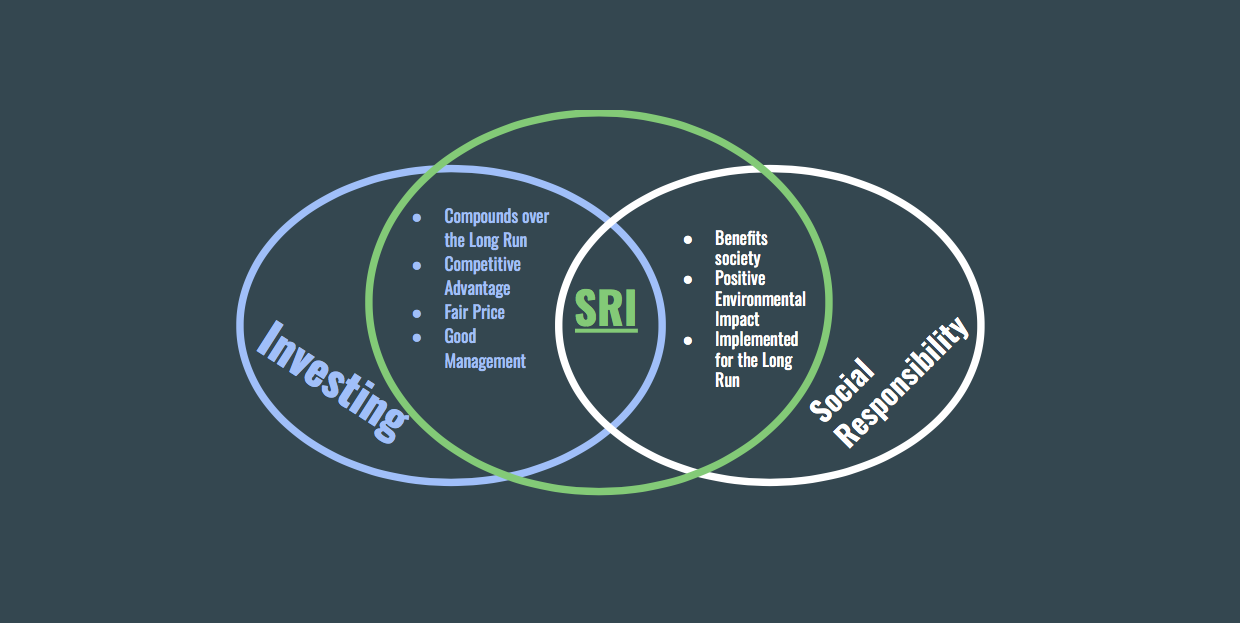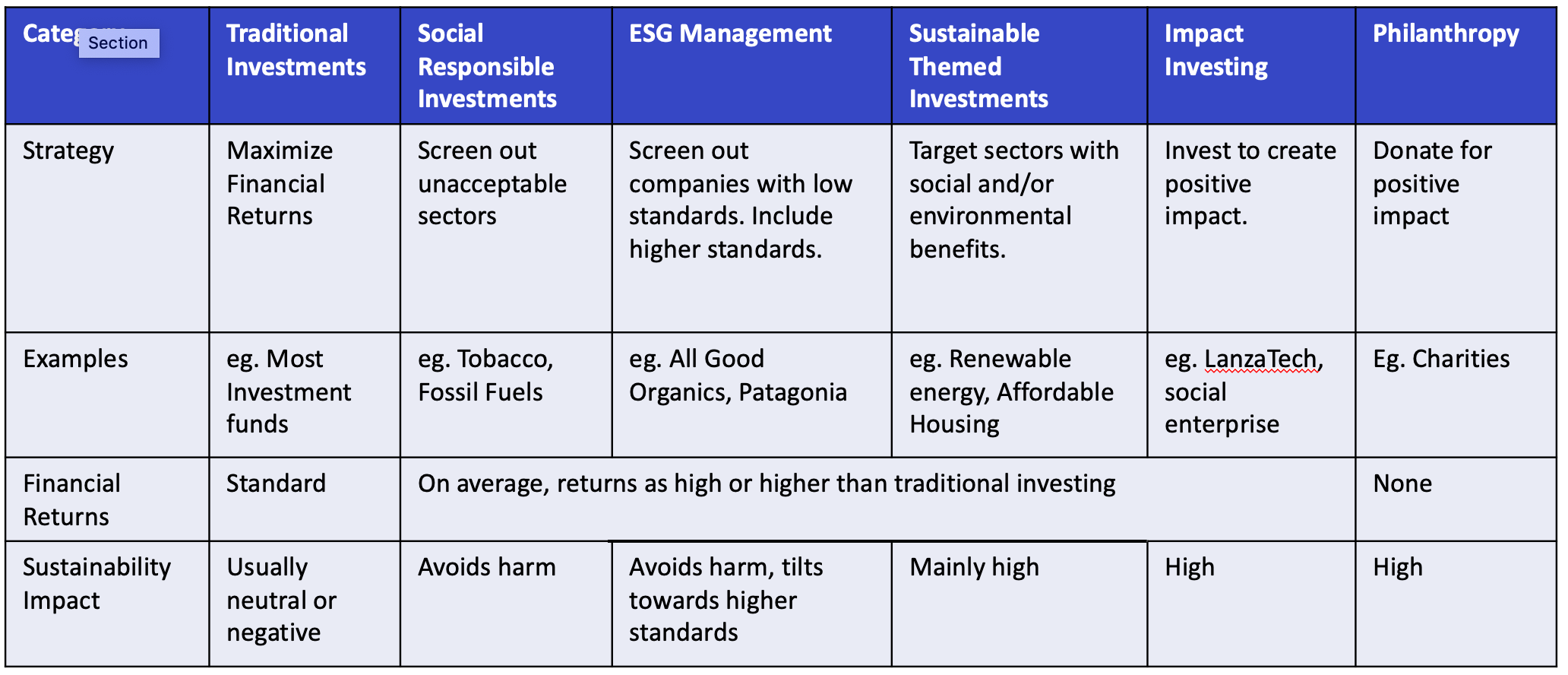
In a world where financial decisions carry substantial weight, responsible investmentsemerge as a beacon of transformative change. These investments not only seek financial returns but also aim to generate positive social and environmental impacts.
By allocating capital to companies championing sustainability, ethical practices, and social progress, responsible investments pave the way for a future where profit aligns harmoniously with purpose. Investors engaging in this movement not only contribute to a more sustainable planet but also witness the potential for robust financial growth.
With responsible investments, individuals wield the power to drive meaningful change while securing their financial futures. This approach transcends traditional investment paradigms, empowering investors to support businesses dedicated to solving global challenges. From renewable energy initiatives to companies fostering diverse and inclusive workplaces, responsible investments offer a pathway towards a more equitable and prosperous world, fostering a sense of fulfillment alongside financial success.
What Is Responsible Investment?
Responsible investment (RI)is an approach to investing that considers environmental, social, and governance (ESG) factors alongside financial performance when making investment decisions. It aims to align investments with the long-term sustainability of the environment, society, and the economy.
Environmental Factors
- Climate change
- Pollution
- Resource use
- Biodiversity
Social Factors
- Human rights
- Labor practices
- Diversity and inclusion
- Community engagement
Governance Factors
- Transparency and accountability
- Risk management
- Corporate ethics
Responsible investment can be implemented in various ways, including:
- Impact investing -Investing in companies that aim to generate measurable social and environmental benefits in addition to financial returns.
- Active engagement -Working with companies to improve their ESG practices.
- Thematic investing - Focusing on sectors or companies that are making positive contributions to sustainability.
- Screening -Excluding companies from investment portfolios that engage in harmful practices or underperform on ESG metrics.
Benefits Of Responsible Investment
- Positive impact on society and the environment - RI can contribute to a more sustainable and equitable future.
- Reduced risk -ESG factors can help identify and mitigate risks related to climate change, labor disputes, and regulatory changes.
- Potential for better financial returns -Some studies have shown that companies with strong ESG performance tend to outperform their peers in the long run.
- Alignment with long-term values -RI allows investors to align their investments with their personal values and beliefs.
Responsible Investment Is A Growing Trend
The global responsible investment market is estimated to be worth over $30 trillion, and it is expected to continue to grow in the years to come. This growth is being driven by a number of factors, including increasing public awareness of ESG issues, institutional investors' focus on long-term value, and regulatory developments.
If you are interested in responsible investment, there are a number of resources available to help you learn more and make informed investment decisions.
5 Smart Ways To Dive Into Responsible Investments
Responsible investing, also known as sustainable investing or ESG (environmental, social, and governance) investing, is a growing trend that aims to align investments with positive social and environmental impact while also generating financial returns. Here are 5 smart ways to dive into responsible investments:
1. Talk to a financial advisor - If you're not sure where to start, consider talking to a financial advisor who specializes in responsible investing. A financial advisor can help you create a portfolio that meets your individual needs and goals.
2. Start small -You don't have to invest a large amount of moneyto start making a difference. Even a small investment can help promote positive change.
3. Do your research -There are a wide variety of ESG funds available, so it's important to do your research before you invest. Read the fund's prospectus, pay attention to the fund's holdings, and make sure the fund's investment strategy is aligned with your values.
4. Define your values -What are your priorities when it comes to responsible investing? Are you concerned about climate change? Labor practices? Corporate governance? Once you know your values, you can start to look for funds that align with those values.
5. Educate yourself -Before you start investing, it's important to understand the basics of responsible investing. This includes learning about the different types of ESG funds, the different factors that are considered by ESG ratings agencies, and the potential impact of responsible investing on your portfolio.
Here Are Some Additional Tips For Diving Into Responsible Investments:
- Engage with your portfolio companies -You can use your shareholder power to encourage companies to improve their ESG performance. This can be done by attending shareholder meetings, voting your proxies, and contacting company management.
- Invest in a socially responsible index fund -Socially responsible index funds track an index of companies that have been screened for ESG factors. This can be a good way to get broad exposure to responsible companies.
- Consider investing in a thematic fund -Thematic funds focus on a specific ESG theme, such as renewable energy or clean water. This can be a good way to get exposure to companies that are leading the way in sustainability.
Responsible investing is a great way to align your investments with your values and make a positive impact on the world. By following these tips, you can start to make a difference today.
What Value Does Responsible Investment Create?
RI aims to generate long-term financial returns while also promoting positive social and environmental outcomes.
RI Can Create Value For Investors In A Number Of Ways:
- Better risk management -ESG factors can be used to identify and manage potential risks, such as climate change, labor unrest, and corporate governance scandals.
- Enhanced reputation and brand value -Companies that are seen as being responsible can attract and retain customers, employees, and investors.
- Improved long-term performance -Studies have shown that companies with strong ESG performance tend to outperform their peers over the long term.
- Contribution to a sustainable future -RI can help to promote sustainable practices that can benefit society and the environment.
Here are some specific examples of how RI can create value:
- Investing in renewable energy can help to reduce greenhouse gas emissions and mitigate climate change.
- Investing in companies with strong labor practices can help to improve working conditions and reduce turnover.
- Investing in companies with good corporate governance can help to protect investors from fraud and mismanagement.
RI is not about sacrificing financial returns for social or environmental goals. Instead, it is about investing in companies that are well-positioned for long-term success in a sustainable world.
According to a 2021 study by Morningstar, ESG funds outperformed non-ESG funds by an average of 1.8% over the past 10 years. This suggests that RI can be a smart investment strategy for investors who are looking to generate both financial returns and positive social and environmental impact.
If you are interested in learning more about RI, there are a number of resources available online and from financial advisors. You can also find a list of ESG funds at the websites of Morningstarand Bloomberg.
Forms Of Responsible Investment
There are many different forms of responsible investment, but some of the most common include:
- Socially responsible investing (SRI) -SRI focuses on investing in companies that have positive social and environmental impacts. This can include companies that are committed to sustainability, fair labor practices, and human rights.
- Environmental, social, and governance (ESG) investing -ESG investing considers a wider range of factors than SRI, including environmental impact, social responsibility, and corporate governance. This can include companies that are reducing their carbon emissions, improving their supply chain transparency, and treating their employees fairly.
- Impact investing -Impact investing focuses on investing in companies that are specifically designed to have a positive social or environmental impact. This can include companies that are developing renewable energy technologies, providing microloans to entrepreneurs in developing countries, or working to improve affordable housing options.
- Thematic investing -Thematic investing focuses on investing in companies that are related to a specific theme, such as clean energy, water sustainability, or healthcare. This can be a good way to get exposure to companies that are at the forefront of innovation in their respective industries
- Sustainable investing -Sustainable investing focuses on investing in companies that are committed to long-term sustainability. This can include companies that are reducing their environmental impact, improving their social responsibility, and strengthening their corporate governance.
Here are some of the factors that have contributed to the growth of RI:
- The increasing awareness of the environmental, social, and governance risks of traditional investments.
- The growing demand from investors for investments that align with their values.
- The increasing availability of ESG data and analysis.
- The growing recognition of the potential financial benefits of RI.
Responsible Investment Across Asset Classes
Responsible investment (RI), also known as sustainable investing or ESG (environmental, social, and governance) investing, is an investment approach that considers environmental, social, and governance factors alongside financial factors. RI aims to generate long-term financial returns while also promoting positive social and environmental outcomes.
RI can be applied across all asset classes, including:
- Hedge funds -This includes investments in a variety of assets, including stocks, bonds, and commodities. Investors can consider ESG factors when selecting hedge fund investments or investing in ESG-focused hedge funds.
- Private equity -This includes investments in non-listed companies. Investors can consider ESG factors when selecting private equity investments or investing in ESG-focused private equity funds.
- Real estate -This includes investments in properties such as office buildings, apartments, and shopping malls. Investors can consider ESG factors when selecting properties or investing in ESG-focused real estate funds.
- Fixed income -This includes bonds issued by governments, corporations, and other entities. Investors can consider ESG factors when selecting individual bonds or investing in ESG-focused fixed-income funds.
- Public equities -This includes stocks of listed companies. Investors can consider ESG factors when selecting individual stocks or investing in ESG-focused mutual funds or exchange-traded funds (ETFs).
The Specific Approach To RI Will Vary Depending On The Asset Class. However, The General Principles Of RI Remain The Same:
- Engage with companies to improve their ESG performance -This can be done through shareholder activism or by voting on ESG-related proposals.
- Assess the ESG performance of potential investments -This can be done by using ESG ratings from third-party providers or by conducting your own research.
- Identify ESG factors that are relevant to the asset class -For example, for public equities, investors might consider factors such as a company's carbon emissions, labor practices, and corporate governance.
Here Are Some Examples Of How RI Can Be Applied Across Asset Classes:
- In hedge funds, investors can invest in hedge funds that use ESG factors to identify investment opportunities and manage risks.
- In private equity, investors can invest in companies that are committed to sustainability and have strong corporate governance practices.
- In real estate, investors can invest in properties that are energy-efficient, have green roofs, or are located in walkable communities.
- In fixed income, investors can invest in bonds issued by companies or governments that have strong ESG track records.
- In public equities, investors can invest in companies that are reducing their carbon emissions, developing renewable energy technologies, or improving their labor practices.
Frequently Asked Questions About Responsible Investments
What Is Meant By Responsible Investment?
What is meant by responsible investment? Responsible investment is an approach to investment that explicitly acknowledges the relevance to the investor of environmental, social and governance factors, and of the long-term health and stability of the market as a whole.
What Are Responsible Investment Practices?
Responsible investment involves considering environmental, social and governance (ESG) issues when making investment decisions and influencing companies or assets (known as active ownership or stewardship).
What Is The Difference Between Responsible Investing And ESG Investing?
ESG looks at the company's environmental, social, and governance practices alongside more traditional financial measures. Socially responsible investing involves choosing or disqualifying investments based on specific ethical criteria.
What Is The Morningstar Website?
The data and research provided by Morningstar include insights on investment offerings, managed investment products, publicly listed companies, and real-time market data. Its website includes free information on individual funds and stocks
Conclusion
Responsible investments stand as a testament to the evolving landscape of finance, offering a compelling fusion of profitability and positive societal impact. Embracing this ethos allows investors to align their financial goals with their values, channeling resources into endeavors that not only yield returns but also catalyze meaningful change. This commitment to responsible investing isn’t merely a trend; it represents a fundamental shift towards a more conscientious and sustainable approach to wealth creation.
As individuals, institutions, and nations increasingly recognize the urgency of addressing environmental, social, and governance challenges, responsible investments emerge as a potent catalyst for progress. By prioritizing sustainability, ethical practices, and societal well-being within investment strategies, we pave the way for a future where financial success is intertwined with a thriving, equitable world. It's a call to action for investors to wield their influence responsibly, shaping a brighter future while reaping the rewards of purpose-driven financial growth.


